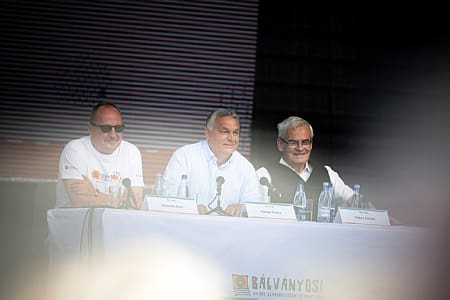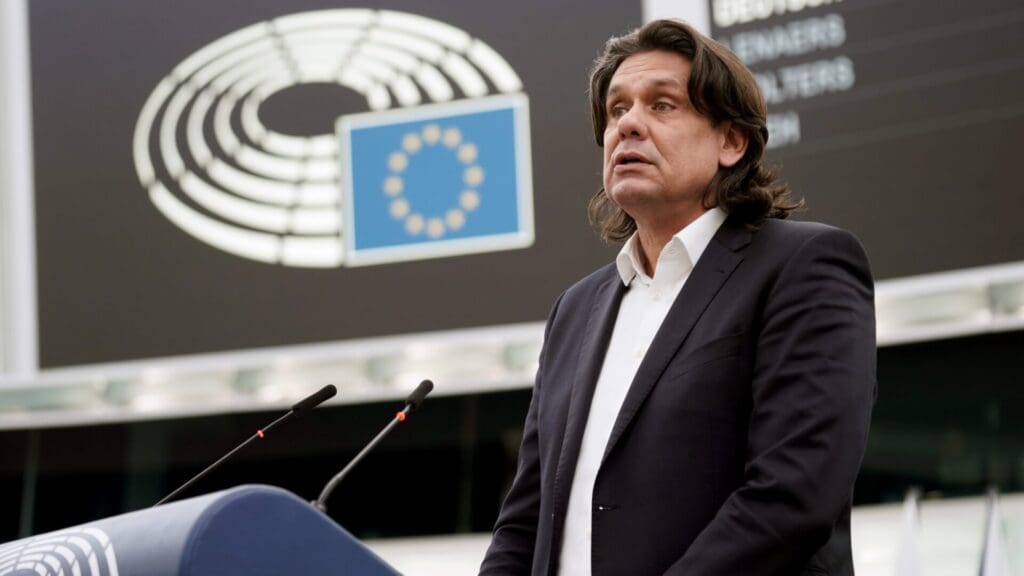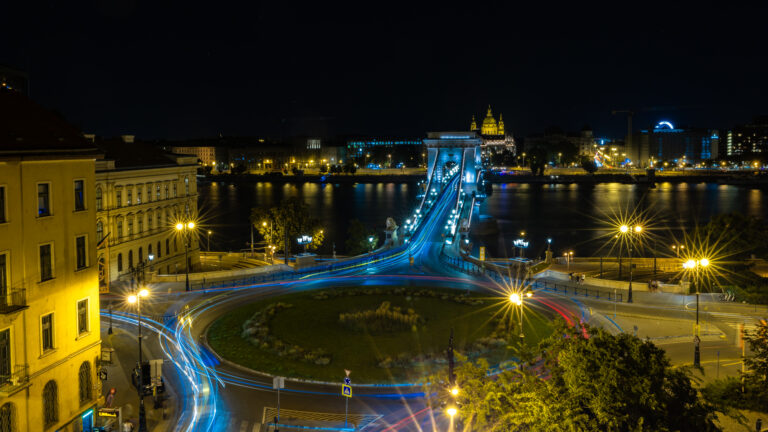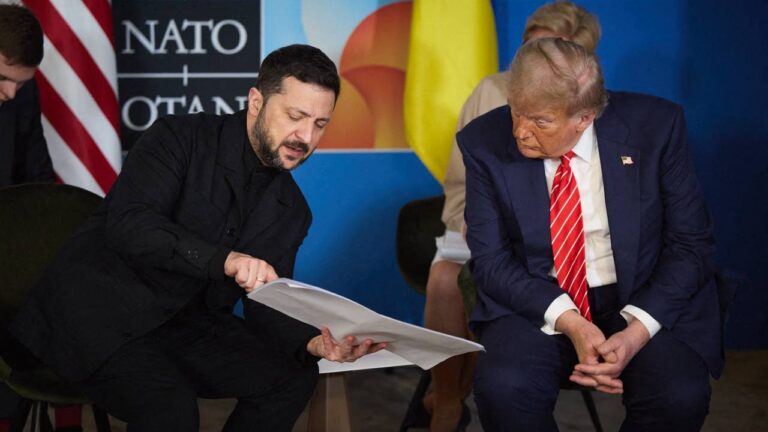This article was published in Vol. 3 No. 3 of the print edition.
The thing that strikes Westerners most acutely about Prime Minister Viktor Orbán’s oratory is its bluntness and fearlessness. He says what he thinks, and does not seem to worry overmuch about the effects. This is a refreshing contrast to the usual bafflegab from senior politicians, whose cautious words often have to be read like tea leaves or coffee grounds. Agree with him or not, you almost always know what Orbán means, and where he stands.
On the other hand, Orbán’s directness can cause headaches for diplomats and political advisers. For me, going to Tusványos for the first time this year, I only understood it as the place where, in 2014, Viktor Orbán proclaimed his fidelity to illiberal democracy. Though the reasoning behind, and the meaning of, the phrase is certainly defensible, the prime minister will never live down having characterized his programme as illiberal. Indeed, whenever I am asked by fellow Americans to explain Viktor Orbán to them, inevitably we arrive at some version of: ‘Doesn’t he believe in illiberal democracy?’
For all the wailing and gnashing of teeth in the West about Orbán’s term, almost nobody has bothered to turn to the transcript of the 2014 speech to better understand what the prime minister meant. Here, from the transcript, is the concept presented in context:
‘What is happening in Hungary today can accordingly be interpreted by stating that the prevailing political leadership has today attempted to ensure that people’s personal work and interests, which must be acknowledged, are closely linked to the life of the community and the nation, and that this relationship is preserved and reinforced. In other words, the Hungarian nation is not simply a group of individuals but a community that must be organised, reinforced and in fact constructed. And so in this sense the new state that we are constructing in Hungary is an illiberal state, a non-liberal state. It does not reject the fundamental principles of liberalism such as freedom, […] but it does not make this ideology the central element of state organisation, but instead includes a different, special, national approach.’1
Earlier, Orbán had defined the ‘liberal state’ as one that prized the individual’s interests over the community’s. He spoke of how liberal democracy did not prevent foreigners from plundering Hungary’s wealth in the aftermath of communism’s fall. And he talked about how Hungary must build on liberal foundations to construct a politics that is ‘illiberal’ in the contemporary understanding of what liberalism means—globalist, consumerist, stateless, secular. Why? To better serve the interests of the Hungarian people.

commonly known as Tusványos in Băile Tușnad, Transylvania, Romania, 2023. PHOTO: Benko Vivien Cher/Press Office of the Prime Minister/MTI
This was radical stuff from a democratic leader in 2014. It is radical still, though much less so, as events since then in the world, and inside the West, have vindicated Orbán’s diagnosis of nearly a decade ago. Or rather, more than vindicated it: the emergence of Wokeness since then, particularly the rapid advance of gender ideology, has revealed how illiberal—from the left—‘liberal democracy’ has become, though it still masquerades as its former self.
Thus, we have seen liberal democratic leaders in Europe denouncing Hungary as undemocratic because its elected representatives in Parliament chose to restrict LGBT material presented to minors. Thus, we have seen this past February the head of the US Agency for International Development come to Budapest to disburse $20 million to NGOs to promote ‘democracy’—which is to say, to foment a Colour Revolution against the democratically elected government of a NATO ally. Only the hopelessly naive today can see that the words ‘liberal democracy’ in the mouth of Western leaders and institutionalists really mean ‘conforming to the will of Washington and Brussels’—that is, the imperial capital and its regional administrative centre.
The good news is that post-Trump, the geopolitical vision of Viktor Orbán has become somewhat clearer to the American right, though far more remains to be done on that front. By late summer, essays were beginning to appear in respectable US journals suggesting that Ukraine cannot win its war with Russia, and that maybe it is time to begin peace negotiations. This was Orbán’s position from the very beginning, and though it was mere foreign-policy realism, he was denounced as a Putin lackey for it. Slowly but surely, American conservatives—at least those outside the Beltway Brahmin class—are becoming aware that the Magyar chieftain sees some things more clearly than our own leaders do.
Which makes Orbán’s remarks at Tusványos 2023 more than a little unnerving. It is not because he is wrong, but because he is probably right—yet typically for Orbán, he tells truths that few people want to hear. The core of his talk, as I see it, was the risk of war as the world passes from American hegemony to a multipolar, or even bipolar, situation. He spoke of China’s rise, of course. ‘[T]he fact is that there has never been such a rapid and tectonic shift in the global balance of power as the one we are living through today’,2 said Orbán.
China’s astonishing rise, he explained, directly challenges the United States’ belief in ‘its inalienable right to world economic supremacy’, which Orbán accurately characterized as ‘part of its national identity, and a kind of article of faith’. Today, though, after its unprecedented economic ascent of the past thirty years, ‘China stands before us fully attired as a great power. It has a civilizational credo: it is the centre of the universe, and this releases inner energy, pride, self-esteem and ambition.’3
Orbán hardly needed to spell out that here he contrasted China with the spent and diminishing power of Western civilization, which has abandoned its ancestral religion, Christianity, and no longer believes in itself. Or, to be more precise, the West no longer believes in what it once was—a vibrant civilization based on Christian faith and the secularization of Christian values in the Enlightenment. Instead, a successor ideology has taken power in Western capitals and in the Western mind. It is based on the sanctification of radical individualism, and the negation of religion, nationality, traditional family and sexual norms, and of the historical legacy of the West itself. This successor ideology—which lacks a name yet, but which advances its illiberal goals by masking itself as ‘liberal democracy’—may not believe in the West, per se, but it absolutely believes in its right to power in the name of ‘universal values’:
‘The Chinese simply laugh at this, describing it as a Western myth, and noting that such talk of universal values is in fact a philosophy hostile to other, non-Western, civilizations’, said Orbán. ‘And, seen from over there, that view contains some truth.’4
Well, seen from here, such talk of ‘universal values’ in the mouth of a Joe Biden or Ursula van der Leyen is in fact a philosophy hostile to Christianity, and to a liberal democratic politics based on the principles that were once the foundation of Christendom. (This is why Orbán later clarified his 2014 remarks by saying he favours ‘Christian democracy’.)
What Orbán did not say in Tusványos this year is that the West has entered a period of decay in which its staunchest believers are beginning to question themselves. American conservatives are starting to ask themselves, in the parlance of a well-known internet meme, ‘Are we the baddies?’
That is, it was once unthinkable on the American right that the United States stood for anything other than truth, decency, democracy, and liberty around the world. Whether or not that was ever true is beside the point. Patriotic Americans believed it was, and backed their country as the ‘indispensable nation’ defending the Good in a world of villains—chiefly the godless Communists of the USSR.

Today, though, these same Americans see how the cultural left has conquered most US institutions, and is turning their power on American conservatives—including their families, their schools, and their churches. When Viktor Orbán made those controversial remarks in Tusványos in 2014, had you said to most Americans that within a decade, at least six US states would have passed laws granting their governments the right to seize minor children from their unwilling parents for the sake of sexually mutilating the minors, via chemicals or surgery, to facilitate a sex change—well, they would have thought you were delusional. Yet it has happened.
So, when I tell American friends that our government has an ambassador in Budapest who behaves as a Roman proconsul, lecturing the backward Magyars on their barbarianism by not celebrating Pride, they begin to understand in ways they had not before that on the global stage, we Americans are turning ourselves into the Baddies. They understand this because they themselves are experiencing the same kind of oppression by the cultural left in power in the US.
It is a hell of a thing for ordinary Americans to grasp that their country has become the leading force in the world for delegitimating traditional family values, and demonizing those few remaining leaders in the West—I am thinking of the governments of Hungary and Poland—who wish to cling to the religious heritage that once made Europe great. But once these Americans recognize that the enormous hard and soft power of the American Empire has been arrayed against foreign peoples in the same way it is being arrayed against us at home, a shift in consciousness begins.
Put another way, it is hard to get American patriots to accept that the ruling class has turned our Shining City on a Hill into Babylon, but when they do, the days to come in the United States will be dark and filled with Sturm und Drang. Anyone with a sense of modern Spanish history cannot fail to notice the parallels between contemporary America and the unstable Spanish Republic in the early 1930s.
US domestic politics was not Orbán’s concern at Tusványos, but in his remarks, the prime minister foresaw the strong possibility of great power conflict. He spoke of the ‘Thucydides Trap’, a phrase referring to war that emerges when one great power declines as another rises. We will be lucky to escape war between the US and China, said the prime minister. But war would be only the most destructive wave of the tsunami unleashed by this tectonic restructuring of the global system now on the move.
What should Hungarians do? The question—and Orbán’s visionary answer—has meaning beyond Hungary, in ways that Americans and other Westerners only dimly recognize now. And it goes back to the prime minister’s 2014 advocacy of ‘illiberal democracy’ for Hungary.
Orbán talked about how Europe has devastated its own economy by cutting itself off from Russian energy at Washington’s behest. This might have been justifiable if it hurt Ukraine’s invaders, but in fact it has not. Russia simply sells its energy to others on the global market—and it finds customers easily, because most of the world outside the West is no longer cowed by Washington. For once softening his words, Orbán seemed to be saying that Hungarians should prepare for the possibility that their country will have to decouple from European economic structures, which have been made subordinate to US interests, for the sake of its own economic survival.
More important was the prime minister’s lengthy digression on ‘the spiritual foundations of this era’. Without using the term ‘illiberal democracy’, Orbán nevertheless once again explained the meaning of the concept. He said:
‘If you read the constitutions of other European countries, which are liberal constitutions, you will see that at the heart of them is the “I”. If you read the Hungarian Constitution, you will see that it is centred on the “we”. The Hungarian Constitution’s essence, its founding premise, is that there is a place that is ours: our home. There is a community that is ours: this is our nation. And there is a way of life—or perhaps more precisely an order to life—which is ours: our culture and our language. Therefore in the Constitution our spiritual starting point is that the most important things in human life are those which cannot be obtained alone. This is why the “we” is at the heart of the Constitution.’5
What Orbán said here, at least to my American ears, is that the West has staked its future on a successor ideology that is suicidal. From mass migration to the dissolution of the normative family and sex roles, to the annihilation of nations, to the suppression of free speech, to a globalist cultural imperialism that seeks to spread its toxins worldwide, Hungarians have to recognize that if they accept this way of thinking and living, they will die as a nation. If Hungarians accept ‘liberal democracy’ as the post-Christian West has defined it, they will cease to exist.
These are the stakes for Hungary. They are the stakes for all the countries of Europe, though only Hungary and Poland seem to be aware of it. At Tusványos, the prime minister said plainly that the core of this conflict is not political, but ‘anthropological’—meaning, based on a struggle over the meaning of man. During the Enlightenment, Orbán said, the best and the brightest believed in the creation of a rational secular order without religion:
‘At that time, two hundred years ago, that was not out of the question. It might have been a possibility’, he said. ‘But two hundred years have passed, and today we can see that it is pure illusion: by rejecting Christianity, we have in fact become hedonistic pagans.’
How strange—and strangely thrilling—to hear this from a European statesman! Though the United States is far more religiously observant than Hungary, you would never hear these words, and this analysis, from an American senior politician. They do not think philosophically. Orbán does, which is why he is the only leader in the West with a real vision for how to survive in a post-Christian civilization.
By ‘post-Christian’, I do not mean that there are no Christians left in the West. Clearly there are. I mean instead that the West no longer looks to the Christian faith and the Bible to understand itself. Yet as Orbán rightly divines, if a nation and a civilization is not grounded in a sacred story, a narrative that is the binding source of its values, it will not have the means to change without dissolving itself.
‘Only the hopelessly naive today can see that the words “liberal democracy” in the mouth of Western leaders and institutionalists really mean “conforming to the will of Washington and Brussels”’
In the mid-1960s, the American sociologist and cultural critic Philip Rieff said that the Sexual Revolution then underway was the most consequential of the twentieth century—more so even than the Bolshevik Revolution. It was a bold statement to make at the time. Rieff’s point was that the Sexual Revolution was based on the throwing-off of a transcendent source of morals and ethics, and replacing it with an ethos based on pleasing the individual. This, Rieff predicted, would produce an ‘anti-culture’—one without limits—that would inevitably break down in the face of its own deep contradictions.
We are deep into that process now. The United States, the pre-eminent modern nation, has abandoned its Christian foundations and is now the world’s most revolutionary power—chiefly because it exports the Sexual Revolution in its most advanced form: the abolition of the traditional family as normative, and also of the most basic fact of human biology, sexual dimorphism, or the existence of male and female. Viktor Orbán gets this, and lamented at Tusványos the effect of American cultural hegemony, exercised via its European Union proxies:
‘The European Union rejects Christian heritage, it is managing population replacement through migration, and it is waging an LGBTQ offensive against family-friendly European nations. Just a few days ago we saw the fall of Lithuania, which had a really fine, remarkable, great child protection law, which we used as a starting point when constructing ours. And I see that, under great pressure, the Lithuanians have withdrawn and annulled the child protection laws that they had adopted back in 2012. “I fear the Greeks, even when they bring gifts…”6 This is where American friendship leads, dear friends!’7
It is painful, as an American, to read that friendship with my country results in the corruption of children. But this is where we are now, and the Hungarian prime minister’s painful words are important for Americans to hear.
Orbán’s parting words were almost Churchillian in their defiance of the undemocratic, ‘unaccountable empire’ that is the European Union. He went on to say that Hungarians love Europe, but they will not give up ‘our common home, our common language, our common public sphere and our common culture […] This is why we shall not compromise. We shall not back down. In Europe we shall insist on our rights. We shall not yield to political or financial blackmail’, he said. ‘Bargaining is possible in relation to issues linked to tactical time—or even strategic time; but never on issues that belong to historical time.’8
What a pregnant phrase: ‘historical time’. With it, Orbán indicates that Hungary, and the West, are living through one of history’s hinges, a point on which entire civilizations turn. Hungary became Hungary in the year 1000, when Stephen, the first king of the Magyars, accepted the Christian faith and the crown from the Roman pope, and set about Christianizing his people. When a giant illuminated cross, composed of lighted drones, hovered over the Danube at the conclusion of the St Stephen’s day this past August, it was not only a religious statement, but a proclamation of nationhood. Orbán understands that without asserting its roots in Christianity, and without a palpable sense of the sacrifices necessary to make the Hungarian people resilient in a world of conflict and turmoil, the nation will not survive.
It is true for every nation in Europe. But today, only Hungary, and perhaps Poland, have leaders who understand that. And this is why they defy the soft totalitarianism coming from the Western empire, as it came, within living memory, in hard form from the East.
Perhaps there is a message in that, something implicit that is both strategically and historically radical. Orbán praised China as sneering at the West’s pretentious claims to universal values. If the West has abandoned the Christian faith and authentic liberal democracy based on it, and has instead become a culturally imperialist hegemon for values and systems that dissolve faith, family, and nation, then might Hungary’s survival depend on developing its connections with China? Could it be that for the first time in the millennium since King Stephen set Hungary’s course by facing West, the current Magyar chieftain, a Christian, is counselling his people to look to the pagan East to secure their future? It is a bizarre thought, but then again, we live in apocalyptic times.
NOTES
1 ‘Prime Minister Viktor Orbán’s Speech at the 25th Bálványos Summer Free University and Student Camp’, 26 July 2014, Tusnádfürdő (Băile Tuşnad), Romania, Website of the Hungarian Government (30 July 2014), https://2015-2019.kormany.hu/en/the-prime-minister/the-prime-minister-s-speeches/prime-minister-viktor-orban-s-speech-at-the-25th-balvanyos-summer-free-university-and-student-camp.
2 ‘Speech by Prime Minister Viktor Orbán at the 32nd Bálványos Summer Free University and Student Camp’, 22 July 2023, Cabinet Office of the Prime Minister, https://miniszterelnok.hu/en/speech-by-prime-minister-viktor-orban-at-the-32nd-balvanyos-summer-free-university-and-student-camp/.
3 ‘Speech by Prime Minister Viktor Orbán at the 32nd Bálványos Summer Free University’.
4 ‘Speech by Prime Minister Viktor Orbán at the 32nd Bálványos Summer Free University’.
5 ‘Speech by Prime Minister Viktor Orbán at the 32nd Bálványos Summer Free University’.
6 Originally, words of Laocoon in the Aeneid, an epic retelling of the Trojan War by the Roman poet Virgil. In everyday usage, the line came to refer to an act of charity that masks a concealed destructive aim. (The editors.)
7 ‘Speech by Prime Minister Viktor Orbán at the 32nd Bálványos Summer Free University’.
8 ‘Speech by Prime Minister Viktor Orbán at the 32nd Bálványos Summer Free University’.
Related articles:








